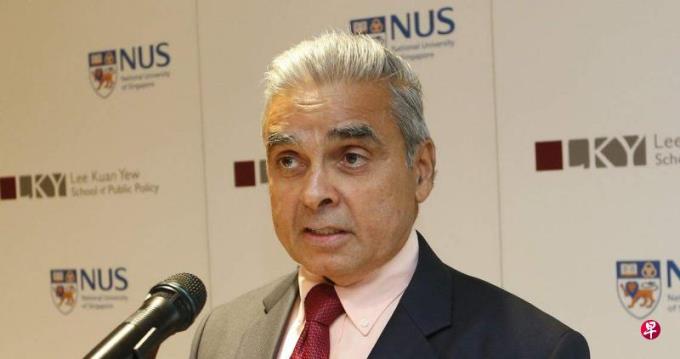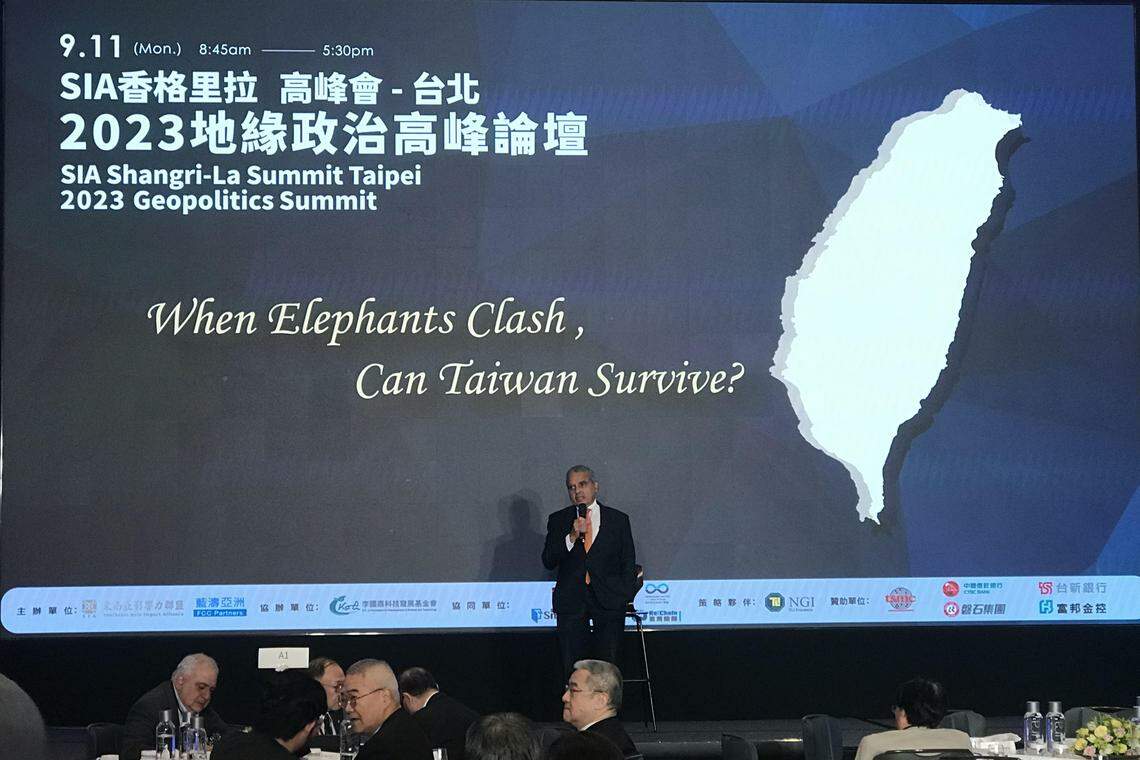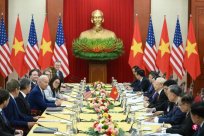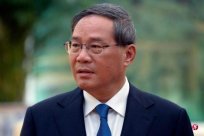
Singapore scholar Kishore Mahbubani believes that the Western leading world pattern is over, and many countries, like Asians, have benefited from the rise of China and are unwilling to get involved in the Sino -US game.The ending of China -US confrontation is difficult to predict. The only certainty is that the competition between the two tops will increase in the next 10 years.
Ma Kaishuo is also a former Ambassador of Singapore in the United Nations.He gave a speech on Monday (September 11) at the "2023 International Geopolis Geographic Summit Forum" held at the Shangri -La Far East Hotel, Taipei.

Ma Kaishuo compares the BRICS countries and the Seventh Kingdoms Group, the European Union and Asians, indicating that the world pattern is changing.He said that in 1992, the total GDP of members of the Seventh -way Group Group was more total than Vancouver, and it is now upside down.Ma Kaishuo also said that few people have noticed that in the ten years from 2010 to 2020, the contribution to the global economy has surpassed the EU.
He said that the superposition effects of these phenomena are significantly different from 12%of the views of the Western population and 88%of the non -Western population, and it is also reflected in the differences between the Western and non -Western countries on the Russian and Ukraine War.
After the world pattern changes, countries have different views on the United States and China.Ma Kaishuo's analysis pointed out that the current Sino -US confrontation is different from the past in the United States and the Soviet Union. Many countries in the world have not fallen into the United States quickly.At that time, the United States took advantage of the Cold War with the Soviet Union, because European and many developing countries such as Brazil, Egypt, Pakistan, and Indonesia all rely on the United States.
Ma Kaishuo believes that the result of the confrontation of the United States and China is more difficult to predict, because the United States no longer obtains obvious advantages in the support of multiple countries during the Cold War of the United States and the Soviet Union.Other countries are unwilling to be involved in it.
Ma Kaishuo said that the attitude of Yajia'an can best reflect how many countries in the world think of the Sino -US game.stand".
One of the reasons why Yajian maintained neutrality in Sino -US confrontation was to economically benefit from China's rise.Ma Kaishuo said that in 2000, the trade between the United States and the Asianan was more than three times that of China -Asia's Da'an. Last year, China -Asia's Gyeongan trading far surpassed the United States -Asia.
Latin America and African countries are the same.Although Latin America is in the scope of U.S. influence, many Latin American countries have higher trade with China than the United States; Africa welcomes China to invest.Ma Kaishuo recounted a African minister he knew, said, "Whenever Americans come, we are reprimanded. Chinese people come, we get bridges, hospitals, and loans."
Joseph Nye, a professor at Harvard University, who participated in the forum online, delivered a speech entitled "Are we destined to fall into the Cold War with China?"
Joseph Nai believes whether China and the United States are in the Cold War depends on the definition of the Cold War.If the Cold War means "long -term competition", it is indeed the Cold War.However, if you point to the Cold War of the Soviet Union containing the established historical metaphor, it is necessary to avoid using it.
Joseph Nai said that the United States and the Soviet Union were almost incompatible at the economic or social level, while the United States and China were not.He believes that the United States can be decoupled with China, but it cannot be completely decoupled without paying economic costs, and American allies will not join.At the same time, no country can solve cross -ethnic issues such as climate change alone, so regardless of good or bad, the United States has fallen into a relationship with China.
For this reason, Joseph Naisa believes that the United States needs a more complicated strategy than the Cold War. It is not only based on allies, but also uses rules -based systems created by the United States.




